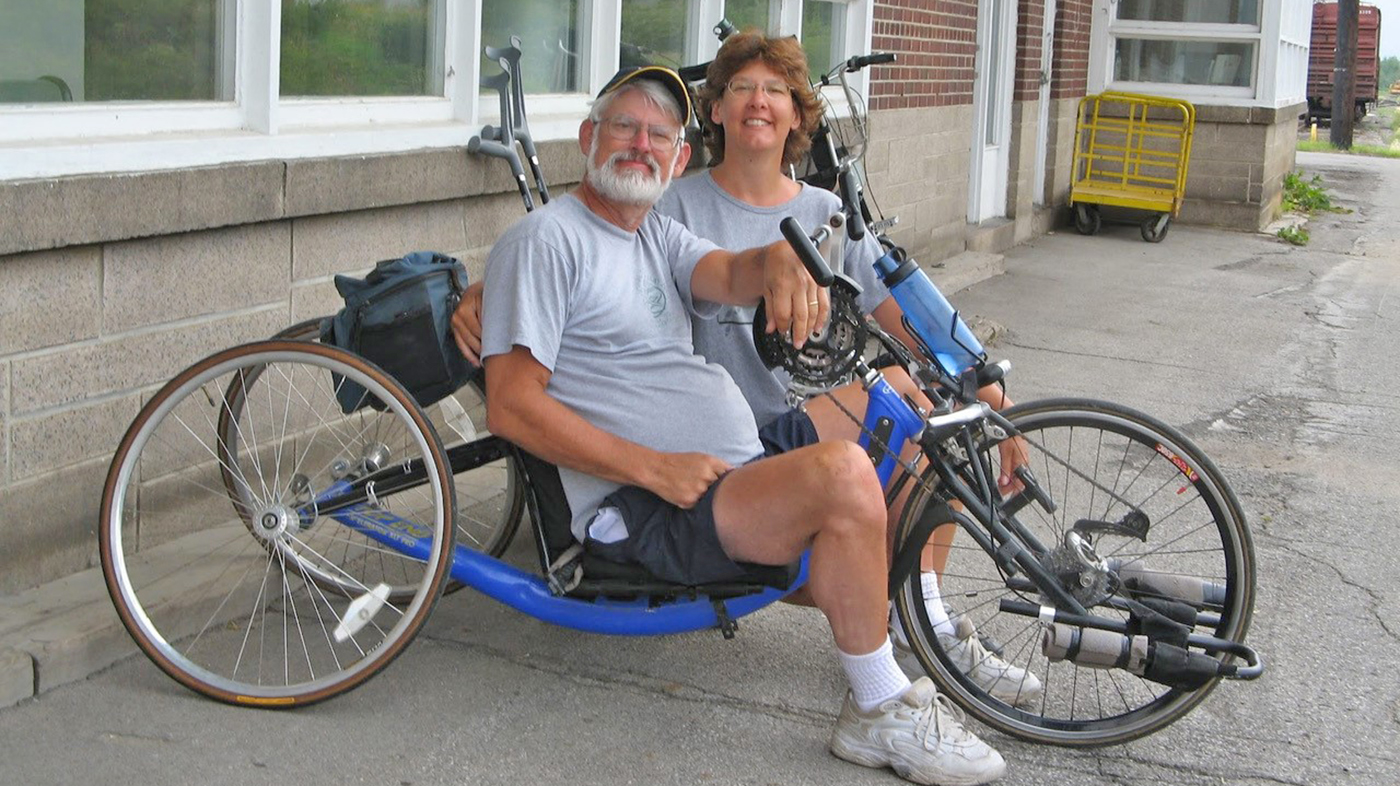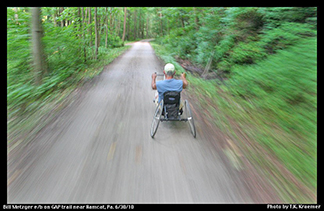Navy Veteran Bill Metzger shares his journey with multiple sclerosis.
There are many wonderful things in this world, and I’ve spent much of my life trying to see them. I enlisted in the Navy my senior year of high school, starting my tour in September 1964. I wanted to experience more than my small town of Mechanicsburg, Penn., could offer and the Navy was the best way out. I served for three years with a two-year tour in Guam. Following my military service, I worked in journalism and photography.
I started getting the symptoms of MS in 1978 and was diagnosed in 1983, though that diagnosis never changed my desire and ability to see and explore.
I retired in 2021 and rode freight trains all over the country for five years, escorting heavy, expensive and fragile machinery to make sure it arrived quickly and in one piece.
As my MS progressed, I needed a career change and settled on creating maps and brochures as contributing illustrator for Trains and Classic Trains magazines, where I made historic and contemporary railroad maps of subjects worldwide.
When I was diagnosed with MS, I decided to become a stronger, fitter person; I quit smoking and started exercising. I ran when I was traveling. When running became unsafe, my feet stumbling too often, I took up swimming.
“When I wasn’t biking, I was thinking about biking.”
After an ear infection, I took up biking. Every year I planned and completed a two-week bike trip with hundreds of small trips in-between. And when I wasn’t biking, I was thinking about biking. I figure I did about 30,000 miles on two wheelers, including one that lasted six weeks and 2,000 miles.
My MS hasn’t been a walk in the park. As my disease progressed, I found that handling a bike became increasingly difficult. That was in 1984, the year I also had a cardiac bypass.
Two of my neighbors who are occupational therapists introduced me to the handcycle. Once I rode it on our local trail, the Great Allegheny Passage, I was passing people. My handcycle wasn’t a step down, it was a step up to a new, incredible biking experience.
My wife and I have done several tours in the US and Canada. I keep a logbook and have put over 31,000 miles on the bike.
“Don’t we all adapt as life changes us?”
Though I’ve had MS for over 60 years, it’s never prevented me from living my best life. I’ve had to adapt at times, going from using a cane to forearm crutches and, for the last 12 years a wheelchair, but don’t we all adapt as life changes us?
Now we live in a totally accessible house, and I’ve traveled to thousands of places and met amazing people. I am a founding board member of the Montour Trail Council, which has built 40+ miles of trail around Pittsburgh. I’m also a founding board member of the Great Allegheny Passage Conservancy. We live along the trail and I’ve written a book about it, “The Great Allegheny Passage Companion.”
I’ve been married for 26 years to Pam (pictured above), an amazing woman who shares my love of biking and my adventurous spirit. I have an amazing VA neurologist, Dr. Islam Zaydan at Pittsburgh VA, who is my personal superhero. He’s helped keep me healthy and safe. And I’ve enjoyed excellent general health care through VA.
As a biking enthusiast and adventurer, I’ve learned there are good rides and there are better rides. There’s no such thing as a bad ride. You learn to deal with whatever comes along and you move forward. If it rains, you get wet… so what. Just enjoy the journey. That’s life.
As songwriter John Hartford wrote, “I’m still here. How ‘bout that.”
To learn more about MS, visit VA’s MS Centers of Excellence.
Topics in this story
More Stories
VA is putting Veterans in the driver's seat for making medical appointments.
Larry Trujillo lost 44 pounds and improved his relationship with food during the 90-day TeleMOVE! telehealth program.
The Dayton VA Medical Center released its March 2025 Good News Report, spotlighting compassionate care, special recognitions, and life moments shared by Veterans and staff.







Hey Bill,
That is a well-written, short article and I appreciate you taking the time to put it out there for all of us to read.
I am a long-time sufferer of CHARCOT FOOT DISEASE and I try every day to have that same attitude that you shared saying that we each must adapt. I am from the Deep Mid-South and the saying around here is to “Just Keep on Keeping On” and that is the only choice we have.
Again, thanks for the article.
Cheers
Bob